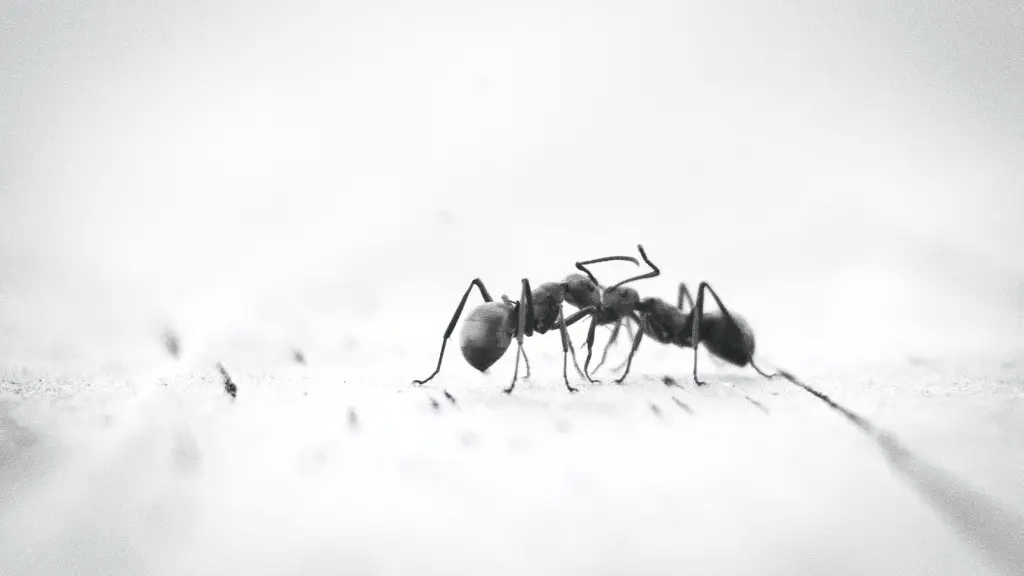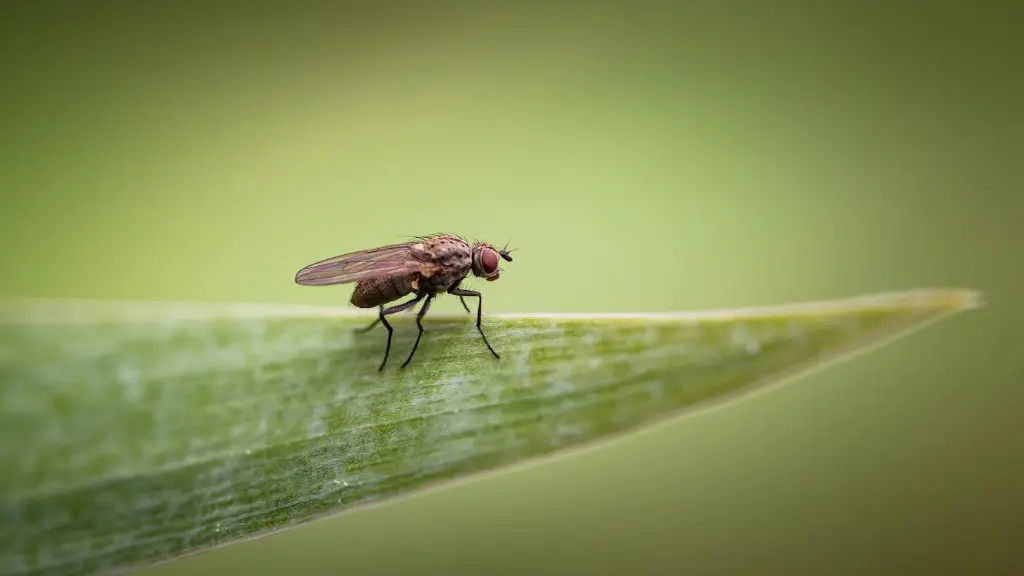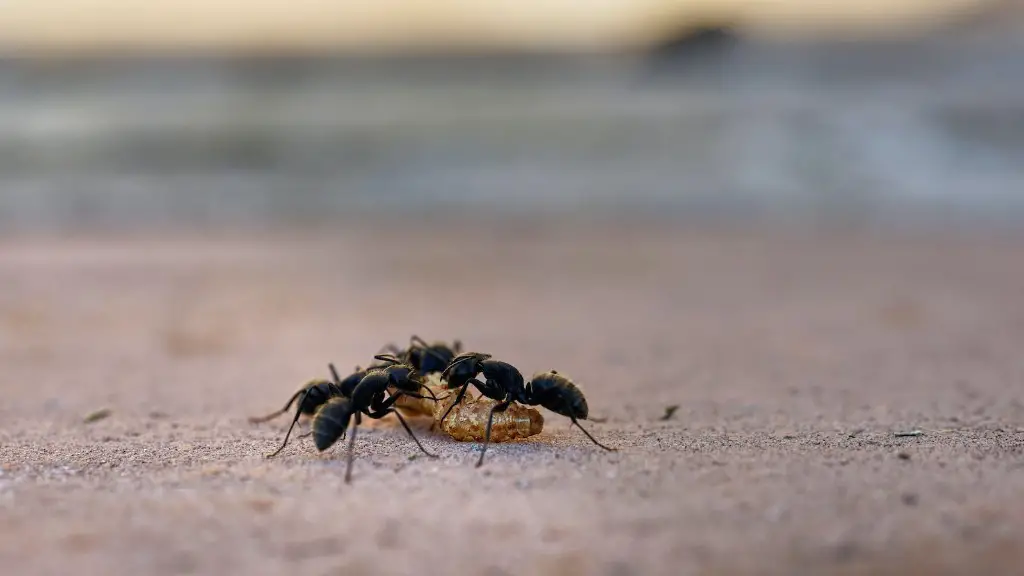How to Get Rid of Very Small Ants
Small ants are a pesky nuisance, and can be tough to combat. Fortunately, if you know what you’re doing, you can get rid of small ants relatively quickly and easily. In this article, you will learn the best way to get rid of very small ants in your home.
Recognizing the Problem
It’s important to first identify the type of ant you’re dealing with. Small ants should be easy to spot, as they are usually about 1 to 2 millimeters long. The most common small ants include pavement ants, odorous house ants and pharaoh ants. It is important to recognize which type of ant you have, as this will determine the most effective way to get rid of them.
Choosing the Right Ant Bait
The most efficient way to get rid of very small ants is to use ant bait. Ant baits are pre-measured containers of bait containing a slow-acting insecticide. The ants eat the bait, usually containing a sweet-tasting food, and take it back to the nest to share with other ants. This is an effective way to get rid of infestations of very small ants because the slow-acting insecticide has a delayed effect. This means that the ants could be carrying the poison back to their nest before it begins to work, thereby killing off the entire ant colony.
Locating the nest
Once you have chosen the right ant bait, it is important to find the nest. Ant nests can be difficult to find as they are hidden underground or in other dark places. Look for small piles of dirt or tunnels in the ground that the ants are entering and exiting. Identifying the nest is key to getting rid of small ants, as you must place the ant bait in or near the nest to be most effective.
Proper Ant Bait Placement
Once the nest has been identified, it is time to place the ant bait. This is important to do properly, or else the ant bait may not be effective. Place the ant bait near the nest, so the ants can identify it quickly and take it back with them. Place the ant bait in any areas where you have observed ant activity in your home. Make sure the bait is not too close to children and pets as it is still poison.
Prevention and Maintenance
The best way to keep small ants away is to practice preventive maintenance. Keep your home or office clean and free of food crumbs and spills, so that ants do not have access to an easy food source. Make sure windows and doors seal properly, and there are no gaps or cracks that ants could use to enter your home. Also, regularly inspect your house and check for any signs of ant activity. If you see any, act quickly and follow the steps outlined in this article.
Using Natural Remedies
If you do not wish to use an insecticide, there are some natural remedies that may be effective in deterring small ants. These include the use of essential oils, such as tea tree oil, lavender, peppermint or citrus oil. Spraying these around windows and doorframes or near ant nests can help keep small ants away. Other natural remedies include using coffee grounds, chalk or cayenne pepper.
The Benefits of DIY Solutions
DIY solutions are often the most cost-effective and environmentally friendly ways to get rid of very small ants. A DIY approach allows you to customize your ant control and use natural remedies to reduce the amount of harmful chemicals used in your home. Additionally, a DIY approach is faster and simpler than calling a professional pest control company.
Precautions to Take
Although DIY solutions are often the best way to get rid of very small ants, it’s important to take certain precautions when tackling an ant infestation. Start by wearing protective clothing, such as gloves and long sleeves, to minimize contact with the ants. Be careful when using insecticides, as they can be dangerous if inhaled or ingested. And, of course, always follow the manufacturer’s instructions when handling ant bait.
Using Traps
If you’re dealing with a large infestation, consider using ant traps. Ant traps work by attracting the ants to the bait and trapping them in a small container. Once trapped, the ants are unable to escape, so the traps are very effective in eliminating an ant infestation. Make sure to check the traps regularly and replace the bait when necessary.
Home Remedies
If you’re looking for an alternative to ant traps and baits, consider using some home remedies. Apple cider vinegar, borax, and white vinegar are all effective home remedies for small ants. Mix equal parts of these ingredients and spray around the affected area to deter ants. These natural repellents are less toxic than insecticides, so they’re a safer option for households with young children or pets.
Other Tips
In addition to the methods outlined above, there are also a few other things you can do to prevent and get rid of very small ants. Check for moisture around door frames and windows, and make repairs if necessary. Make sure to empty trash cans often and use an ant-proof garbage can with a tight-fitting lid. Finally, make sure food is stored properly and not left out, as this can attract ants.
Summary
Getting rid of very small ants can be a tricky business, but with the right approach, it is possible to eliminate an infestation. Begin by identifying the type of ant and choosing the right ant bait. Then, locate the nest and place the bait nearby. To deter ants naturally, use essential oils or home remedies like vinegar or borax. Finally, ensure your home is moisture-free and all food is stored properly. By following the tips outlined in this article, you should be able to successfully get rid of very small ants.



